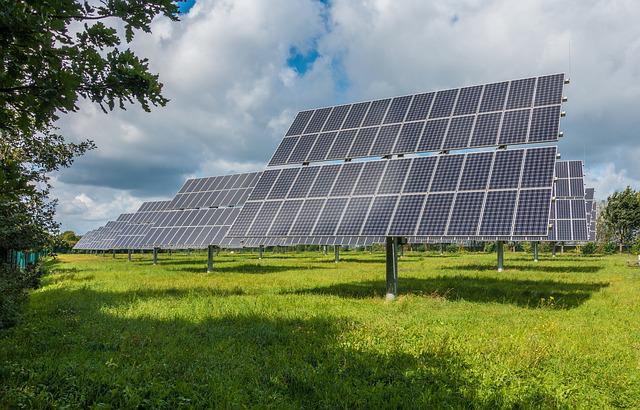You’re probably well aware that solar energy is a brilliant way to reduce your carbon footprint, save money, and help the environment. The trouble is, not everyone has enough space to install giant panels or a big enough roof to house them. What can you do instead? Store your excess solar energy! Solar storage is becoming more and more commonplace as its adoption rises. There are many different ways that you can store your solar energy and this article will give you some suggestions on how you can do it. If you’ve considered using solar energy but don’t have the space for panels or a suitable roof, there are still plenty of ways to get the benefits of solar power in your home or business. Here are our top 5 recommendations for storing your solar energy:
Rule Out the Basics First
The first thing to do before you start looking at ways to store solar energy is to rule out the basics. That’s right, before you even think about solar storage, you should make sure you’re taking full advantage of solar energy in its simplest form. Here are a few suggestions to get you started. – Make sure you’re using the right equipment – Solar panels are a great way to start using solar energy but they come in many different forms. Make sure you’re using the right equipment for your space and that they are installed correctly. – Maximize natural light – Perhaps the easiest way to use solar energy in your home is to maximize natural light. Make sure you’ve got plenty of windows and skylights so that the sun can naturally illuminate your home. – Choose the right hours for solar harvesting – If you have the space for solar panels, you can also choose the right hours for harvesting. Mid-day is best for solar panels and you can get even more energy from them by tilting them towards the sun. – Turn off your air conditioner at the right time – When you’re harvesting solar energy and using your AC, make sure you’re doing it at the right times. AC units are most efficient when the outside temperature is falling, so those are the best times to use it.
Battery-backed Solar Storage
One of the most common ways to store solar energy is by using a battery. This is often referred to as battery-backed solar storage. You can use a battery to store excess energy from your solar panels and then use that energy whenever you need it. This saves you from having to switch back to the grid and being charged for the energy you use. But what kind of battery should you use for solar energy storage? The best type of battery for solar energy storage is a lithium ion battery because it’s cheap, efficient, and environmentally friendly. You can even use it to power your home or business when the sun isn’t shining. You can use a battery to store your solar energy in two ways. You can charge the battery whenever your panels are producing energy and then use the electricity stored in the battery to power your appliances whenever you need it. This is called net energy metering and it’s how most solar energy systems work in the majority of countries. Alternatively, you can use the battery to store excess energy and then discharge it when you need it. This is called surplus energy metering and it’s a great way to smooth out your energy supply.
Smart Home Integration of Storage
Another common way to store solar energy is to use a smart home integration of storage. This is where you have solar panels installed in your home and a giant battery outside. You then monitor your energy use and the amount of energy your solar panels produce to help regulate when you charge and discharge your battery. You can use this to store excess solar energy and then use that energy whenever you need it. There are a few different ways to do this. You can use an app to monitor your energy flow and open or close a circuit that lets you charge your battery when your panels produce more energy than you need. You can also use a smart meter to monitor your energy flow and make sure the battery is charged when your solar panels aren’t producing enough energy. Or you can install a hybrid system that lets you do both.
Diversification of Supply
Another way that you can store solar energy is by diversifying your supply. This means that you install more than one type of solar energy system in your home or business. You can use this to store energy from one system and use it to power your other devices. This is a great way to minimize your reliance on any one source of energy. If you have a solar energy system that’s backed up by a battery, you can use that battery to store excess energy from your solar panels and then use it for other devices when the panels aren’t producing enough energy. You can also install multiple types of solar panels. For example, you could install both solar panels on your roof and solar panels on the ground. These systems can then work together to produce more energy.
Tankless Hot Water Storage
One of the most common ways to store solar energy is through tankless hot water storage. This is a great way to store solar energy and use it to heat your water. It lets you store excess energy from your solar panels and use that energy to heat your water without having to switch to your grid-powered water heater. This is a good option if you have a large enough solar panel system and a water source nearby. You can use solar energy to heat your water without any power loss and without adding any chemicals. This is a good way to store solar energy because it’s efficient and convenient. You can set it up so that your water is always hot whenever you need it. This is a great way to store solar energy for people who aren’t able to install large solar panel systems. Many people also combine solar energy with tankless hot water storage in order to maximize the benefits of both. When you use solar energy to heat your water, you can also use it to heat your house too. This is a great way to make sure that your water and home are both comfortable at all times, regardless of the weather outside.
Conclusion
Storing your solar energy is a great way to make sure that you always have enough energy. You can store it during the day when the sun is shining and use it later in the day or during cloudy weather. It’s also a good idea to store energy during the fall and winter months when the sun is less intense. Using these strategies can help you to save money and reduce your carbon footprint.

